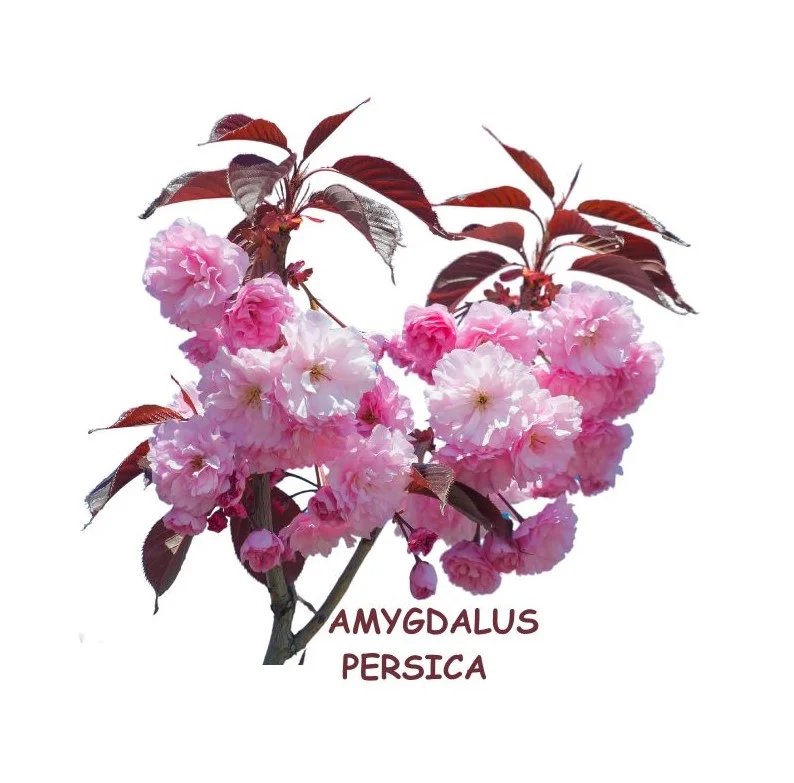Amygdalus persica, commonly known as the peach, is a species of fruit-bearing tree native to China. It belongs to the genus Amygdalus within the Rosaceae family.
Peaches are widely cultivated for their delicious, juicy fruits, which are enjoyed fresh, dried, canned, or used in various culinary applications such as jams, preserves, and desserts.

Table of Contents
ToggleSOURCE INFORMATION
Common Name: Peach tree
- Kingdom: Plantae
- Clade: Angiosperms
- Order: Rosales
- Family: Rosaceae
- Genus: Prunus
- Species: P. persica
The peach tree is believed to have originated in Northwest China, where it has been cultivated for thousands of years.
It gradually spread to other parts of Asia and was later introduced to Europe and eventually the Americas.
KEY CHARACTERISTICS
- Amygdalus persica is a valuable remedy for various conditions, including vomiting of different types, morning sickness, irritation of eyes, ischuria (difficulty in urination), haematuria (blood in the urine), and Hæmorrhage from the bladder.
- Gastric Irritation: It is particularly indicated for gastric irritation in children, where no form of food is tolerated. Loss of smell and taste may also be present.
- Tongue Symptoms: The remedy is associated with gastric and intestinal irritation when the tongue is elongated and pointed, with the tip and edges appearing red.
- Nausea and Vomiting: Constant nausea and vomiting are key symptoms addressed by this remedy.
RELATIONSHIP
- Comparison: It is suggested to be compared with Amygdalus amara (Bitter Almond) in terms of symptomatology.
- Both remedies may share similarities in symptoms such as pain through tonsils, dark throat, difficult swallowing, vomiting, and cough with a sore chest.
DOSE
- Administration: The recommended doses include a fresh infusion or mother tincture. (The mother tincture is a concentrated liquid extract of a substance).
FREQUENTLY ASKED QUESTIONS
What conditions does it treat?
- Vomiting of various kinds, morning sickness, irritation of eyes, ischuria, hæmaturia, and bladder hemorrhages.
Is it safe for children?
- Yes, it is specifically mentioned for gastric irritation in children where no form of food is tolerated.
How is it administered?
- It can be taken as a fresh infusion or in the form of a mother tincture.
Difficult Words Explained
- Ischuria: Difficulty or inability to urinate.
- Haematuria: Presence of blood in the urine.
- Tonsils: Oval-shaped masses of tissue on both sides of the throat, at the back of the mouth.
- Mother Tincture: A concentrated liquid extract obtained by macerating a botanical substance in alcohol.
It is important to note that this information is based on homeopathic principles, and the efficacy and safety of such remedies may not be supported by conventional medical evidence.
Always consult with a qualified healthcare professional for advice tailored to your specific health condition.
